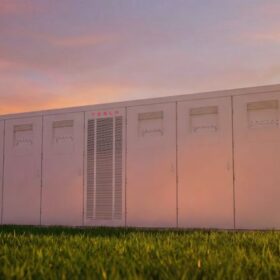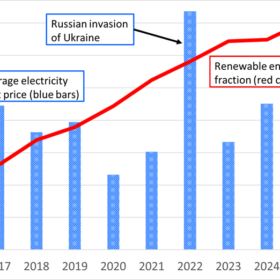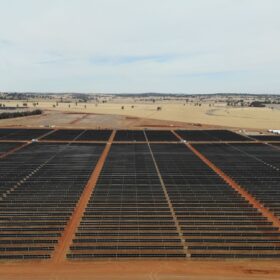This pioneering collaboration blends NGV Earth’s cutting-edge catalytic fuel synthesis process with Hadean Energy’s revolutionary tubular Solid Oxide Electrolyser (tSOE) technology, heralding a major step forward in aviation sustainability.
The advanced tSOE system, developed by Hadean Energy, will harnesses renewable electricity and waste heat to efficiently convert carbon dioxide (CO₂) into carbon monoxide (CO), and water (H₂O) into green hydrogen (H₂) at high temperatures.
NGV Earth’s proprietary catalytic technology then transforms these sustainably produced components into ready-to-use aviation fuel, fully compliant with rigorous international ASTM D7566 standards.
Hadean Energy is an Australian startup spun off from the CSIRO, Australia’s national science agency. Chris Rowland, CEO of Hadean Energy, said the tSOE component of the pilot plant would be built in Australia and transported to Israel for integration with NGV Earth’s plant, leveraging the specialist skills of both companies.
“This partnership is a significant leap forward in sustainable aviation, positioning our innovative electrolyser technology at the forefront of clean fuel production. Together with NGV Earth, we are excited to demonstrate the immense potential of our combined expertise to accelerate aviation’s journey to net-zero emissions,” Rowland said.
Arie Sussely, CEO of NGV Earth, emphasised the strategic importance of this collaboration.
“Joining forces with Hadean Energy enables us to unlock new possibilities for the sustainable aviation fuel industry. The synergy between advanced electrolysis and catalytic innovation is precisely what we need to scale eSAF production and significantly reduce aviation’s environmental footprint,” Sussely said.
Initially, the pilot project will produce small amounts of high-quality synthetic sustainable aviation fuel (eSAF). This proof-of-concept plant will pave the way for a larger demonstration-scale facility capable of producing up to one barrel per day of sustainable aviation fuel – powered exclusively by CO₂, water, and renewable electricity. This breakthrough promises a truly sustainable future for global aviation.






By submitting this form you agree to pv magazine using your data for the purposes of publishing your comment.
Your personal data will only be disclosed or otherwise transmitted to third parties for the purposes of spam filtering or if this is necessary for technical maintenance of the website. Any other transfer to third parties will not take place unless this is justified on the basis of applicable data protection regulations or if pv magazine is legally obliged to do so.
You may revoke this consent at any time with effect for the future, in which case your personal data will be deleted immediately. Otherwise, your data will be deleted if pv magazine has processed your request or the purpose of data storage is fulfilled.
Further information on data privacy can be found in our Data Protection Policy.